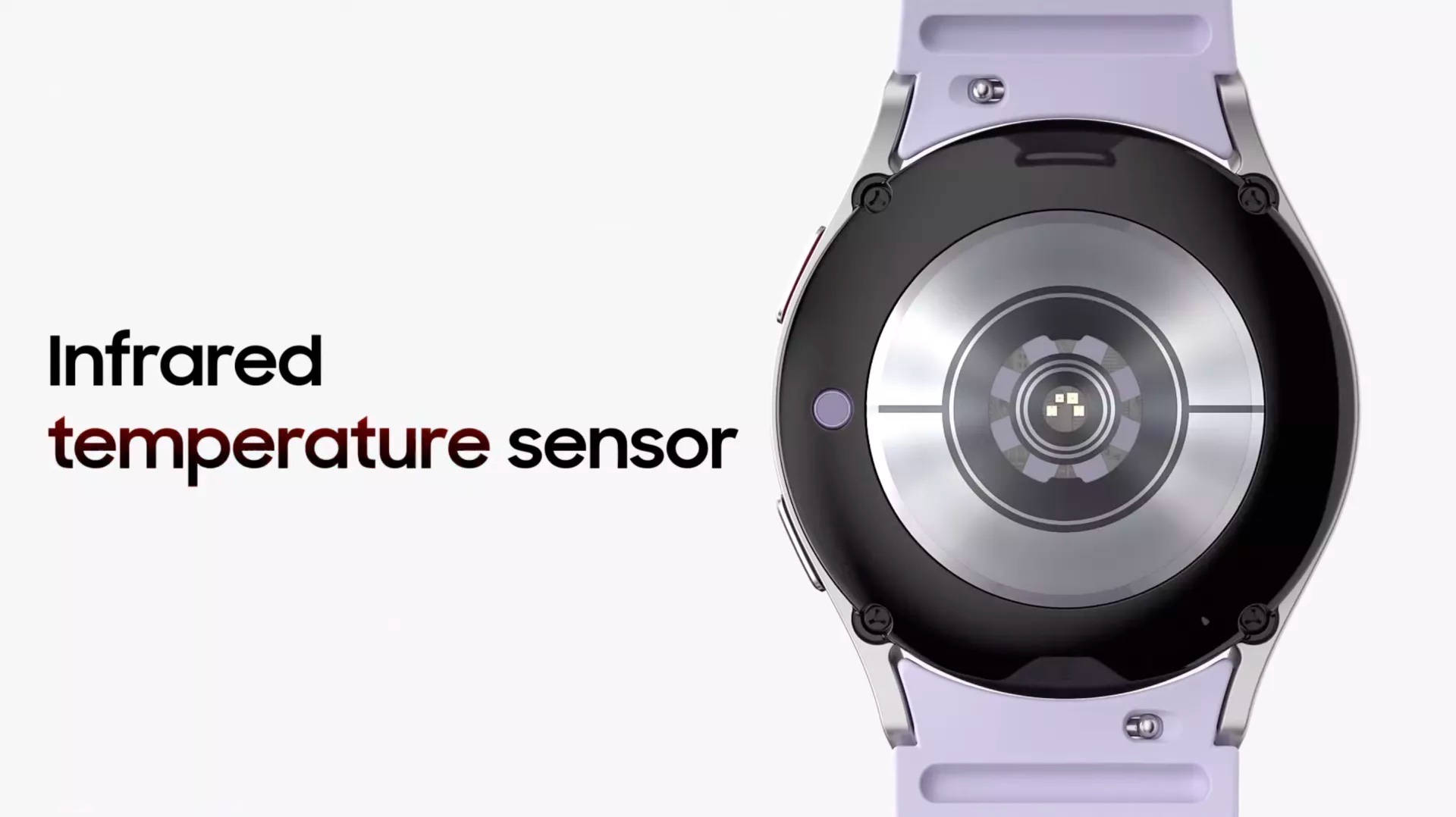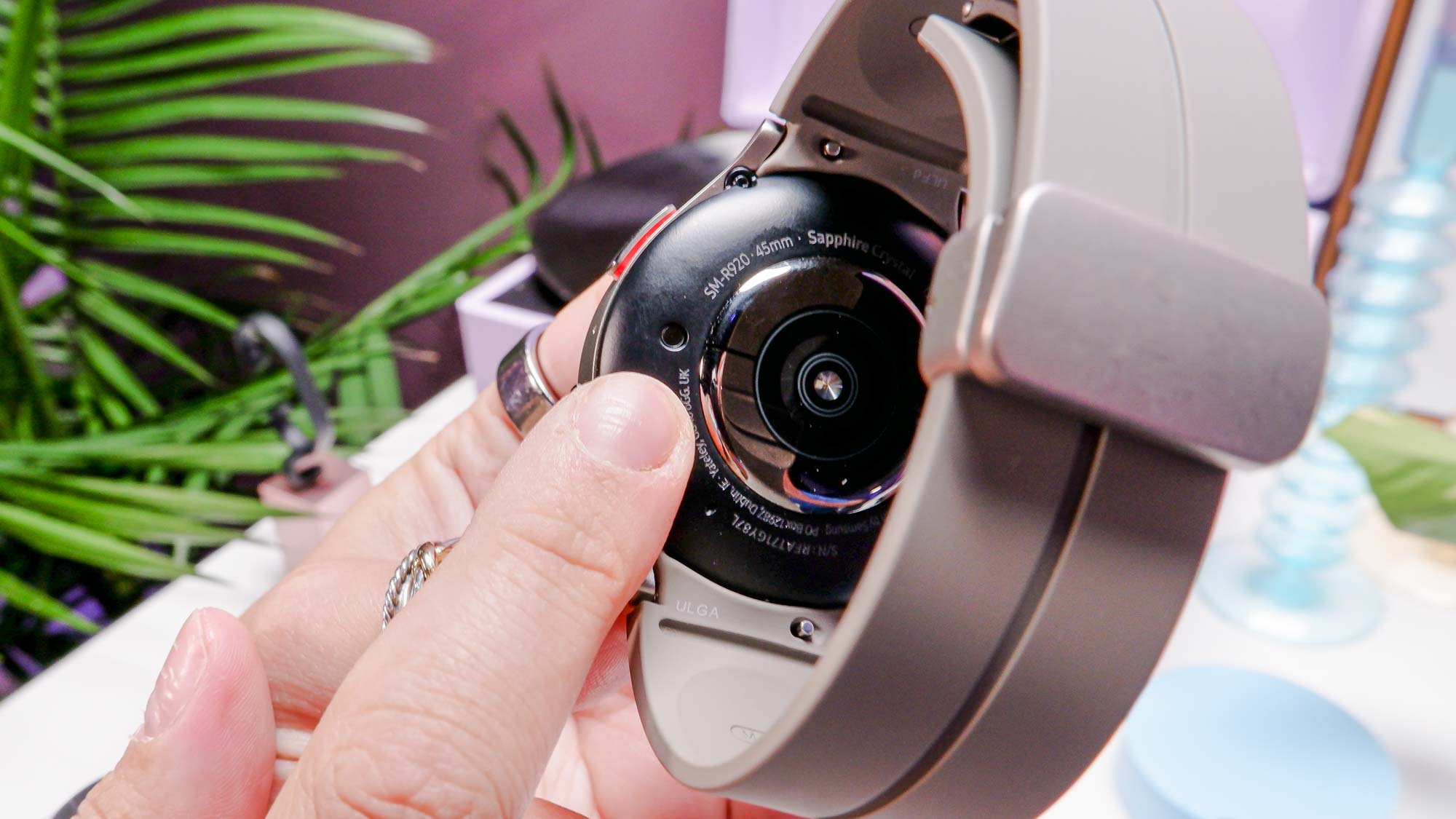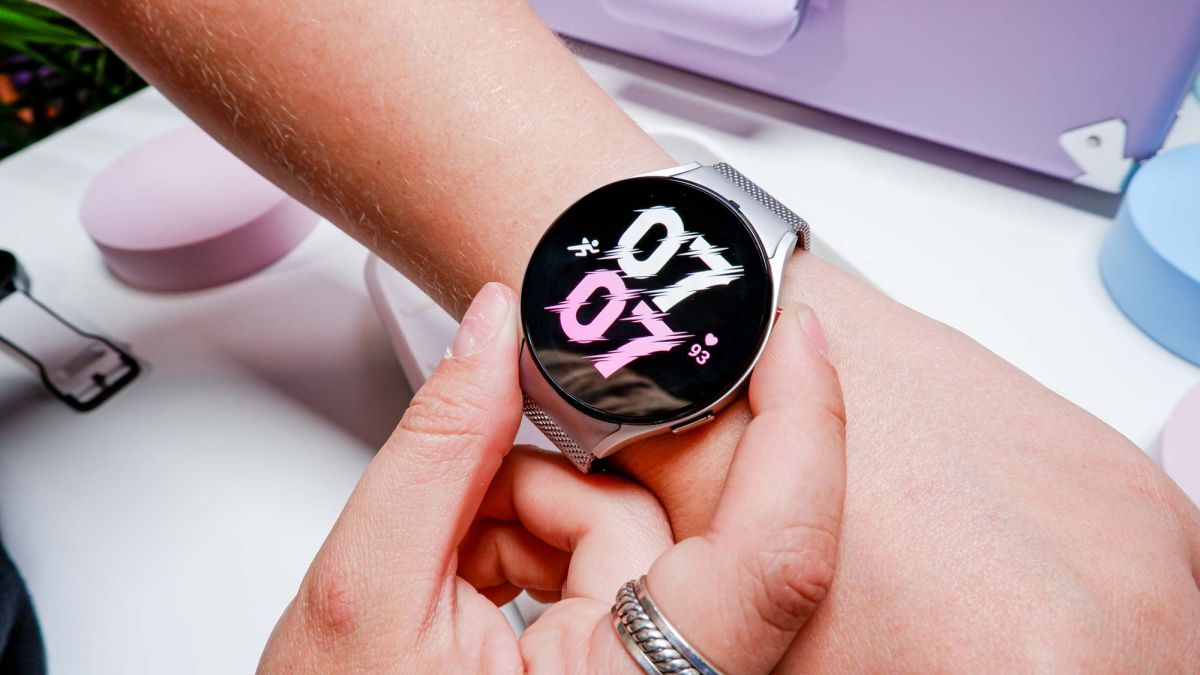The Samsung Galaxy Watch 5 skin temperature sensor is among the top upgrades for Samsung’s new smartwatch, but what exactly does it — or will it — do?
I say “will” because the Galaxy Watch 5 skin temperature sensor won’t be operational when the smartwatch first comes out on August 26, 2022. (Here’s where to preorder the Samsung Galaxy Watch 5 and Galaxy Watch 5 Pro in the meantime.) During Samsung Unpacked, Samsung said users will be able to benefit from the feature “in the near future.”
Now, while this is a rather important asterisk on what was among the most anticipated announcements, it’s not a total surprise. On multiple occasions we’ve seen companies release smartwatches with compelling health sensors that can’t yet be used. The Galaxy Watch lineup prior to the Samsung Galaxy Watch 5 and Samsung Galaxy Watch 5 Pro has included a blood pressure sensor for several years that still doesn’t have FDA clearance.
My gut says we won’t be waiting as long for the Galaxy Watch 5 skin temperature sensor functionality. Samsung hasn’t named a culprit for the hold-up, though regulatory clearance could certainly be the cause. It managed to get ECG (electrocardiogram) approval from the FDA at the time of the Samsung Galaxy Watch 3 launch, so there’s no little to suspect the company can’t achieve the same certificates.
Of course, those certificates do vary country-to-country, so it’s possible the Galaxy Watch 5 skin temperature sensor will be approved in certain locales sooner than others. But this is just an educated guess from my experience testing all sorts of smartwatches touting advanced wellness tech, because again, Samsung has yet to clarify what’s impacting availability.
Samsung Galaxy Watch 5 skin temperature sensor — how does it work?

So what will the skin temperature sensor actually do? According to Samsung, skin temperature readings will be factored into sleep insights. Here’s the statement Samsung provided me with regarding the functionality:
Our holistic wellness approach emphasizes the importance of restful sleep. The addition of a skin temperature sensor will now allow users to monitor their health in even greater detail for more insights each night. Additionally, under our open collaboration philosophy, we’re always looking for ways to partner with third parties so users can get a better look at their wellness.
Sleep tracking became a larger health pillar for the Galaxy Watch this year. One of the upgrades between the Samsung Galaxy Watch 5 vs. Samsung Galaxy Watch 4 is a new sleep coach, intended to design actionable sleep plans to improve the quality of your zzz’s. It’s interesting that the Apple Watch is also emphasized sleep more than before with expanded insights in watchOS 9, which we’ll eventually see on Apple Watch Series 8, but I digress.

From what we’ve learned about skin temperature sensors on other wearables such as the Fitbit Sense, rather than telling you your temperature like a thermometer you use to see if you’re running a fever, a skin temperature instead detects changes in trends. For example, if your skin temperature strays from your baseline one night, it could indicate other irregularities in your daily health.
There are studies that say fertility can also be tracked via skin temperature sensor. Research from the Department of Reproductive Endocrinology, University Hospital Zurich in Switzerland (opens in new tab)(opens in new tab) found that wrist skin temperature can detect ovulation and has a higher true-positive rate than basal body temperature.
The Galaxy Watch does have a women’s health app, so skin temperature readings could be applied for female users. Samsung indicated third-party developers may be able to leverage the Galaxy Watch 5 skin temperature reader for their own health apps, too.
Samsung Galaxy Watch 5 skin temperature sensor outlook
I’m encouraged to see Samsung added a new health sensor this year, offering the Samsung Galaxy Watch 5 as one of the best fitness trackers of the year — not just one of the best smartwatches.
Last year it added the BIA (bioelectrical impedance analysis) sensor for body composition analysis, a feature I initially had some concerns about but have since embraced as a way to track my physique and strength over a long period of time. I don’t imagine having the same hesitations with the skin temperature reader, though.
I also sense the skin temperature reader could give the Galaxy Watch 5 an edge over the upcoming Google Pixel Watch, or even whatever Fitbit Sense follow-up might arrive this fall.
